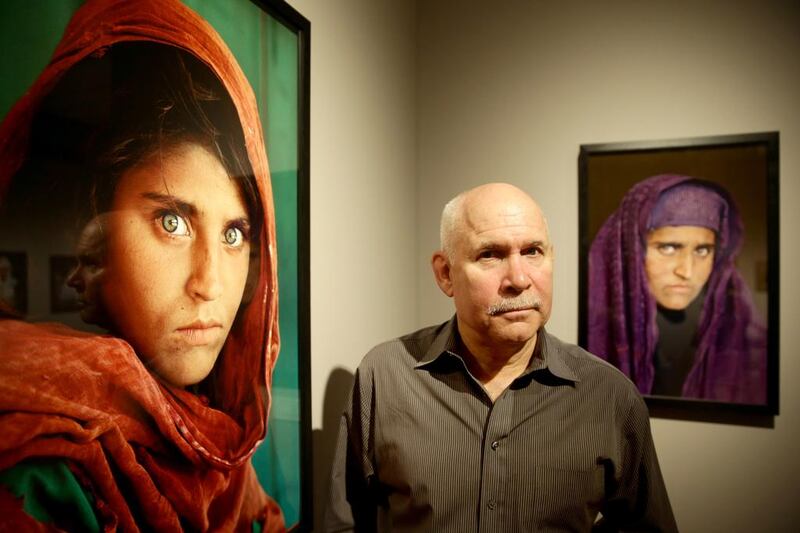PESHAWAR, PAKISTAN // An Afghan woman immortalised on a celebrated National Geographic magazine cover as a green-eyed 12-year-old girl was arrested on Wednesday for living in Pakistan on fraudulent identity papers.
The haunting image of Sharbat Gula, taken in a Pakistan refugee camp by photographer Steve McCurry, became the most famous cover image in the magazine's history.
She now faces up to 14 years in jail, a Pakistani official said.
Ms Gula was arrested by Pakistan’s federal investigation agency (FIA) for fraud following a two-year-long investigation in the north-western Pakistani city of Peshawar, the capital of restive Khyber Pakhtunkhwa province bordering Afghanistan.
“FIA arrested Sharbat Gula, an Afghan woman, today for obtaining a fake ID card,” said Shahid Ilyas, an official of the national database registration authority (Nadra).
Mr Ilyas said that FIA is also seeking three Nadra officials who were found responsible for issuing Pakistan’s national identity card to Ms Gula. The officials have been at large since the fraud was detected.
He said that Ms Gula could be jailed from seven to 14 years and fined between $3,000 to $5,000 (Dh11,000 - 18,365) if convicted of fraud.
Pakistani officials say that Ms Gula applied for a Pakistani identity card in Peshawar in April 2014, using the name Sharbat Bibi.
She was one of thousands of Afghan refugees who managed to dodge Pakistan’s computerised system to get an identity card.
The National Geographic image of Ms Gula was taken in 1984 in a refugee camp in north-west Pakistan at the time of the Soviet occupation of Afghanistan.
Mr McCurry later tracked her down, after a 17-year search, to a remote Afghan village in 2002 where she was married to a baker and had become the mother of three daughters.
Pakistan has launched a crackdown against those who have obtained fake ID cards and launched a reverification campaign across the country.
Officials say Nadra has so far reverified 91 million ID cards and detected 60,675 fraudulent cards by non-nationals.
A Nadra official said that 2,473 foreigners, mostly Afghans, had voluntarily surrendered their fake ID cards.
More than 350,000 Afghan refugees have returned to their war-torn homeland from Pakistan this year, UN data shows, with the torrent of people crossing the border expected to continue.
Pakistan has for decades provided safe haven for millions of Afghans who fled their country after the Soviet invasion of 1979.
Pakistan hosts 1.4 million registered Afghan refugees, according to UNHCR figures from earlier this year, making it the third-largest refugee hosting nation in the world. Another one million unregistered refugees are estimated to be in the country.
Since 2009, Islamabad has repeatedly pushed back a deadline for them to return, but fears are growing that the latest cutoff date in March 2017 will be final.
* Agence France-Presse





